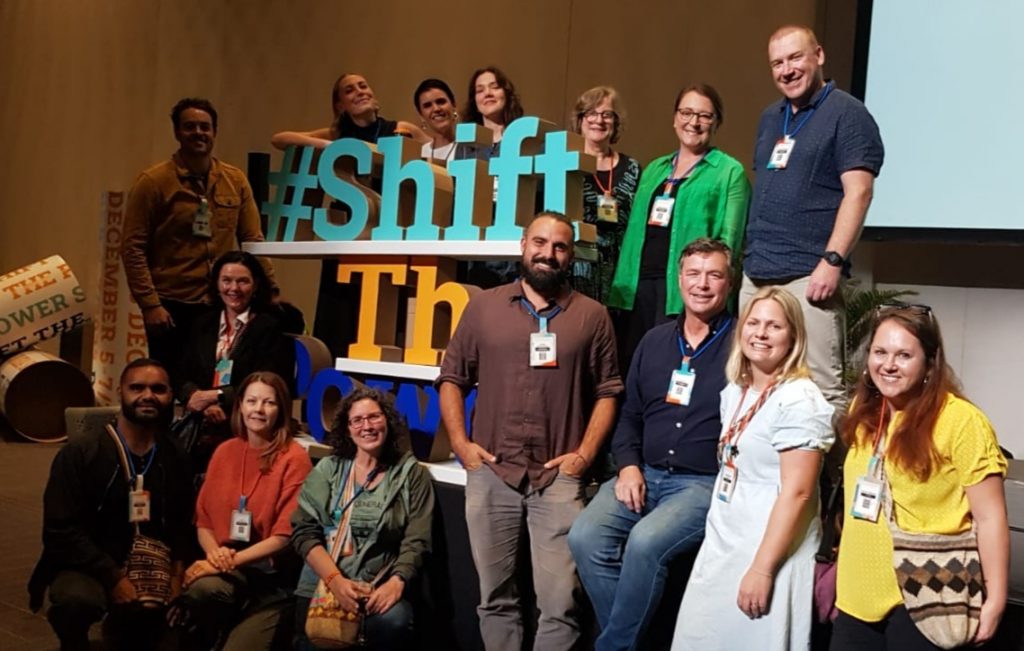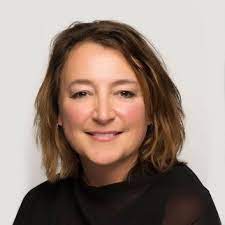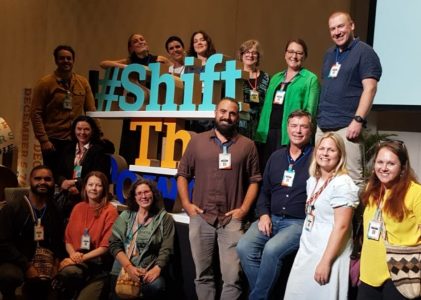

Funding into communities is important, but what if unlocking local energy is our most powerful resource of all, enabling us to embark on the transformational work and empowerment that our communities need? This idea was central at the #ShiftThePower Global Summit in Bogotá, Colombia in December, where surging community philanthropy and the changemaking energy from within communities was explored by over 700 delegates from 70 countries. I was lucky to travel to the Summit with a delegation from Australia and New Zealand and I was left with a sense of the immense power of community energy in self-determination, along with the central role of community foundations in unlocking energy and empowerment at the community margins.
Community philanthropy, defined by Jenny Hodgson from the GFCF, as “communities mobilizing their own resources, be it financial, people, energy, things”, is on the rise across the world, accelerated by a global pandemic, which has seen local action galvanized, more than ever before. There is something transformative about the energy that comes from the activation of local resources, including people’s time, collective energy and money, leading to the self-determination of communities.
We heard some moving perspectives from some of the most challenged places on earth, including Gaza and Ukraine, where raising money for human rights and social justice is seen as controversial and international aid is doing little to help ongoing humanitarian crises. We heard that the international aid system is broken, and that local empowerment is key to revitalization, and recovery. We heard of new movements shifting power within the development system, including the Network for Empowered Aid Response and RINGO, a systems change initiative reimagining the work of international NGOs.
We heard that building community is not transactional work; that dignity not money is at the centre of humanity. We heard of broken systems of ‘impact measurement’, mathematical calculations that simply leave out meaning and the nuances of humanity. We heard of new pathways of measurement in Brazil, Indonesia and Kenya utilizing “moral imagination to capture the wondrous work going on in communities”, measuring what matters, and respecting indigenous world views. We heard that the Latin American and Caribbean women’s rights movement is leading some of the most important social changes happening in the region; women are organizing collective approaches to addressing some of the most complex social problems threatening life, nature and democracies throughout the region (read more at the link here).

While Bogotá might seem a long way from Aotearoa New Zealand, I was struck by similarities, particularly in first nation people’s perspectives, which one participant articulated as “the lamp is different but the light is the same.” As an example, Biraj Patnaik from the National Foundation for India spoke of current economic norms: “the planet won’t permit the prevailing economic model.” This was the exact message we heard at the Philanthropy NZ summit in September 2023 from a Te Ao Māori perspective: we can’t keep building and building on current economic models as if our planet can take an infinite amount of growth.
Localization itself, or more participatory development aligned with #ShiftThePower, activates empowered networks of local civic solidarity. History shows us that communities cannot rely on top-down approaches, outside resources, or simply the good intentions of philanthropy; the answers lie, and always have done so, in community self-determination.
“The lamp is different but the light is the same”: whether you are in Bogotá or Balclutha, Tanzania or Taupō, what we heard is that local people with their time, resources and catalyzing energy, are the change-makers that our communities need.
This blog originally appeared on the Community Foundations of Aotearoa NZ website. Eleanor Cater, Membership Services Director at the Community Foundations of Aotearoa NZ
